News + Media
 |
In the NewsMarch 20, 2007The United States, India, and the Gulf: Convergence or Divergence in a Post-Iraq World?Persian Gulf InitiativeThe Persian Gulf Initiative workshop "The United States, India, and the Gulf: Convergence or Divergence in a post-Iraq World?" convened experts on India, the states of the Persian Gulf, and American policy to discuss the interests, perceptions, and policies of these countries. The resulting discussion focused on a set of important dynamics involving the United States, India, and the Gulf that are often overlooked in an American foreign policy community focused on the current conflict in Iraq. |
 |
News ReleaseMarch 2, 2007Promoting peace, the Just Jerusalem competitionMIT announces today the launch of "Just Jerusalem," a competition that invites participants worldwide to submit urban plans and other creative works to help transform Jerusalem into a more peaceful residence. An international panel of diplomats, researchers and professionals will jury the competition. |
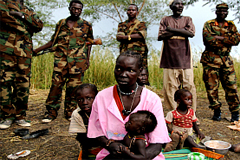 |
AuditMarch 1, 2007Sudan at the crossroadsFrances M Deng, MITThere is a tendency in the outside world to see the tragedy in the Darfur region of the Sudan in isolation from the regional conflicts that have been proliferating in the country for a half century. These conflicts reflect an acute crisis of national identity that is both a cause of genocidal wars and a factor in the state’s indifference to the resulting humanitarian consequences. |
 |
AuditMarch 1, 2007China’s energy governance: perception and realityEdward A Cunningham, MITAs observers outside of China warn of a looming Chinese end game in global energy assets, manipulated by Beijing, leading policymakers inside of China are facing considerable challenges governing major energy companies—especially those that the state owns. |
 |
Analysis + OpinionFebruary 21, 2007Many hidden costs line national security pathCindy WilliamsKansas City StarThe $625 billion Defense Department budget President Bush sent Congress this month for fiscal year 2008 (which begins this October) is significantly larger after adjusting for inflation than any U.S. military budget since World War II. Even more staggering is the Pentagon’s plan to spend $2.8 trillion during the five years from 2008 to 2012. Unfortunately, the most striking thing about this enormous budget is that it falls far short of the true costs of the current national security path. |
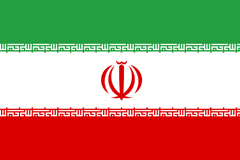 |
News ReleaseFebruary 7, 2007CIS regrets actions of Iranian authoritiesCIS expressed regret and disappointment at the actions of Iranian authorities who barred two prominent Iranian intellectuals from traveling to a conference at MIT. Hashem Aghajari and Abdollah Momeni were stopped from boarding an airplane in Tehran on Sunday, even though they had obtained all required documents. |
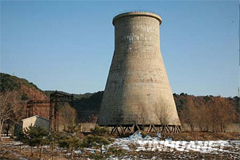 |
AuditFebruary 1, 2007North Korea: negotiations workLeon V Sigal, Social Science Research CouncilIn a laudable about-face, President Bush has decided at last to accept North Korea’s longstanding offer to suspend production of plutonium by shutting down and sealing its reactor and reprocessing plant at Yongbyon, halting construction of a larger reactor and not restarting a newly refurbished fuel fabrication plant. |
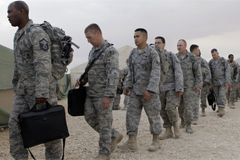 |
AuditFebruary 1, 2007Troop levels in stability operations: what we don’t knowPeter JP Krause, MITTroop levels in Iraq have been one of the most hotly contested issues in American foreign policy over the past three years, from debates over the initial deployment in 2003 to those surrounding the troop surge in 2007. |
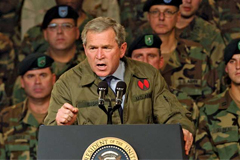 |
Analysis + OpinionJanuary 10, 2007Surge could push troops to breaking pointCindy WilliamsBoston GlobeThe Bush administration's proposal to send an additional 20,000 troops to join the 152,000 already in Iraq is unlikely to bring significant improvement to the situation in Iraq, but it is certain to further damage the already beleaguered US ground forces. |
 |
AuditJanuary 2, 2007Iraq’s political factions: the last chance to build a governing coalition?Barry R Posen, MITPresident Bush is renewing his effort to create an Iraq that can govern, sustain, and defend itself, and is throwing more resources at the project. The first priority must be governance, however, as administration and defense cannot happen without a functioning government. |

